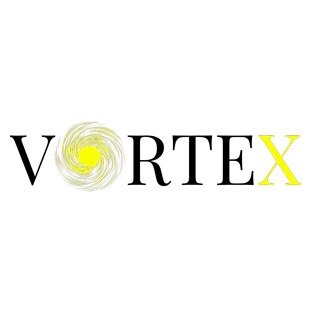Best Debt Capital Markets Lawyers in El Salvador
Share your needs with us, get contacted by law firms.
Free. Takes 2 min.
Or refine your search by selecting a city:
List of the best lawyers in El Salvador
About Debt Capital Markets Law in El Salvador
Debt Capital Markets (DCM) in El Salvador refer to the segment of the financial market where organizations, including corporations, financial institutions, and the government, raise funds by issuing debt instruments such as bonds and notes to investors. These transactions are often facilitated through the local securities exchange or private placements. The legal framework for DCM is primarily governed by regulations designed to ensure transparency, protect investors, and support the development of the country’s financial ecosystem. Understanding the legal environment and proper compliance is essential for both issuers and investors who want to operate in El Salvador’s debt markets.
Why You May Need a Lawyer
Obtaining legal advice is vital when dealing with Debt Capital Markets in El Salvador due to the complexity and regulatory requirements involved. Legal professionals can assist in several situations, including:
- Structuring and drafting documentation for bond issuances and other debt instruments
- Ensuring compliance with local securities regulations
- Navigating registration procedures with the Superintendencia del Sistema Financiero
- Advising on disclosure obligations and investor rights
- Negotiating terms and conditions with investors or underwriters
- Resolving disputes involving debt instruments
- Conducting due diligence for both issuers and investors
In short, legal assistance helps minimize risk, enhances deal certainty, and ensures compliance with all relevant laws.
Local Laws Overview
Debt Capital Markets activities in El Salvador are mainly regulated by the following legislation and regulatory bodies:
- Securities Market Law (Ley del Mercado de Valores): Sets out the basic regulatory framework for securities offerings, including the issuance of bonds and other debt instruments. It provides requirements for registration, disclosure, and ongoing reporting.
- Superintendencia del Sistema Financiero (SSF): The main regulatory authority overseeing financial and securities market activities. The SSF is responsible for authorizing issuances, supervising compliance, and protecting market integrity.
- Stock Exchange Regulations: El Salvador’s stock exchange (Bolsa de Valores de El Salvador) has its own set of rules governing listing procedures, trading, and other market practices relevant to debt instruments.
- Foreign Investment Law: Non-residents can participate in local debt capital markets, subject to rules designed to encourage foreign investment while managing associated risks.
- Anti-Money Laundering (AML) Regulations: All transactions are subject to AML controls to prevent and detect illicit activities.
Compliance with these and other related laws is essential for anyone considering issuing or investing in debt securities in El Salvador.
Frequently Asked Questions
What are the main types of debt instruments issued in El Salvador?
The most common debt instruments include corporate bonds, government bonds, commercial paper, and notes. Both public and private placements are possible, with varying levels of disclosure and regulatory requirements.
Who regulates the Debt Capital Markets in El Salvador?
The primary regulator is the Superintendencia del Sistema Financiero (SSF), which supervises issuers, intermediaries, and the securities exchange to ensure market integrity and investor protection.
Do foreign investors have access to El Salvador’s Debt Capital Markets?
Yes, foreign investors can participate in the local debt capital markets, subject to applicable registration and disclosure requirements, as well as any foreign exchange controls in effect.
What disclosures are required for issuing debt securities?
Issuers must provide a prospectus or informational memorandum detailing financial standing, risks, and the terms of the issuance. Ongoing disclosures may also be required under securities laws.
What are the steps to issuing a corporate bond in El Salvador?
The process usually involves preparing legal documentation, registering the issuance with the SSF, meeting disclosure requirements, and listing the bonds on the local exchange if a public placement is intended.
Are there ongoing compliance requirements after issuance?
Yes, issuers often have continuing obligations such as periodic financial reporting, updating material information, and complying with both securities and exchange regulations.
What legal risks are associated with investing in debt instruments?
Risks can include non-payment by issuers, changes in regulatory oversight, credit risks, market volatility, and legal enforceability of security interests or guarantees associated with the debt instrument.
Can debt instruments be issued privately?
Yes, private placements are allowed and usually involve a smaller group of select investors, which can mean fewer disclosure requirements but still must comply with applicable laws regarding private offerings.
What happens if an issuer defaults on its obligations?
Default procedures will depend on the terms set out in the instrument and applicable law. Investors may have the right to accelerate repayment, pursue collateral, or commence legal action for recovery.
Do I need a lawyer to invest or issue debt securities?
While not always legally required, it is highly recommended to engage a lawyer to handle due diligence, compliance, documentation, and risk assessment when investing in or issuing debt securities in El Salvador.
Additional Resources
For further information and support regarding Debt Capital Markets in El Salvador, consider contacting or consulting the following bodies:
- Superintendencia del Sistema Financiero (SSF): Regulator for securities and financial institutions
- Bolsa de Valores de El Salvador: The local stock exchange, providing information about listed debt securities and market operations
- Ministry of Finance (Ministerio de Hacienda): For guidance on government debt issuances and fiscal policies
- Local law firms with expertise in financial and capital markets law
- Chamber of Commerce and industry associations related to finance and investments in El Salvador
These organizations can offer valuable information, access to market data, and guidance on regulatory and compliance matters.
Next Steps
If you need legal assistance regarding Debt Capital Markets in El Salvador, follow these steps:
- Identify and outline your specific goals, whether you are an issuer or investor
- Gather all relevant documentation and information about the proposed transaction
- Research and contact a law firm or practitioner with a proven track record in debt capital markets and securities law
- Schedule an initial consultation to discuss your needs and legal options
- Work with your legal representative to ensure compliance, risk management, and proper documentation throughout the process
Taking these steps will help safeguard your interests and position you for a successful experience in El Salvador’s Debt Capital Markets.
Lawzana helps you find the best lawyers and law firms in El Salvador through a curated and pre-screened list of qualified legal professionals. Our platform offers rankings and detailed profiles of attorneys and law firms, allowing you to compare based on practice areas, including Debt Capital Markets, experience, and client feedback.
Each profile includes a description of the firm's areas of practice, client reviews, team members and partners, year of establishment, spoken languages, office locations, contact information, social media presence, and any published articles or resources. Most firms on our platform speak English and are experienced in both local and international legal matters.
Get a quote from top-rated law firms in El Salvador — quickly, securely, and without unnecessary hassle.
Disclaimer:
The information provided on this page is for general informational purposes only and does not constitute legal advice. While we strive to ensure the accuracy and relevance of the content, legal information may change over time, and interpretations of the law can vary. You should always consult with a qualified legal professional for advice specific to your situation.
We disclaim all liability for actions taken or not taken based on the content of this page. If you believe any information is incorrect or outdated, please contact us, and we will review and update it where appropriate.
Browse debt capital markets law firms by city in El Salvador
Refine your search by selecting a city.













